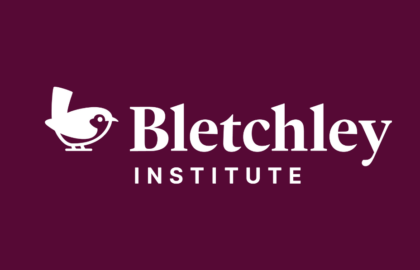How a Move to Tech Can Improve Your Quality of Life

Our Coaching Collective series features tips and expertise from our Career Coaches and is a glimpse of what you can access with our career coaching.
So you’ve been thinking about a career change to tech for some time? Maybe you feel stuck in a low-paying job or recently lost your job. Now is a great time to consider a move to tech.
When it’s time to make the career change?
In my experience as a career coach, I’ve noticed that when clients come to me with these nudging signs or obvious alarms to make changes in their career, the nudges don’t simply go away until they start taking action towards a change. Taking gradual and consistent action will help to build your confidence and feelings of empowerment.
One of the first actions is to determine the benefits of a career change. Then, focus on the benefits of the career change and how you are going to feel when you land that dream job in order to stay motivated and focused during your job search.
Now let’s look at 3 major benefits of making a career change to tech.
1. You could seriously increase your income by changing to tech.
By transitioning to tech, you could boost your income significantly. For job-seeking on-campus U.S. graduates of Flatiron School included in the 2020 Jobs Report, the average starting salary was $74,000*.
This is higher than the 2022 average starting salary for U.S. college grads, which was $50,000.*
It’s interesting to note that graduating from a software engineering bootcamp like Flatiron School could earn you about the same starting salary as graduating from a 4-year university in one of the highest-paying bachelor’s degrees majors.
2. A tech job could offer a more flexible schedule.
Riley Redfern left her life as a pastry chef in San Francisco and now works as a QA Engineer for GigPro. She expressed that her life had changed immensely with things such as having a work-life balance, getting a good night’s sleep every night, disposable income, health insurance, PTO, and paid vacations.
Riley said, “for the first time since I started working, I get to take care of my health and I even got to spend time with my family for the holidays and recently started meditating.” None of these things were possible when she worked in the culinary industry. “My physical and mental health is just way better!” She was also excited about working for a company that aligns with her mission of advocating for people in the restaurant business.
Anthony Bennett went from driving trucks for a living to starting a new job with Mosaic451 as a cybersecurity analyst. When I interviewed him a few weeks ago he said, “The quality of my life will change drastically.” Things he noted included working remotely instead of driving in traffic and having more work-life balance. He said, “I’ve already found a better place to live!”
3. Improved job satisfaction.
People can be unhappy at work for all kinds of reasons. It could be low pay, long hours, or the commute to work. As a career coach, one of the main reasons my clients are looking to make a career change is that they are doing mindless work that is not interesting or challenging enough.
One of the benefits of being a developer is that you solve problems and learn something new every day. You get to work in some of the latest technology and build new things. A student of mine recently described being a developer as the perfect marriage between science and art.
Taking the next step
If you are considering making a career move to tech, all these benefits may give you even more reasons to start taking action.
Ultimately it comes down to your personal choice and whether it makes sense for you. If you are struggling to make a final decision, write out all the pros and cons of your top options and then ask yourself, “if I had to make a decision today, what would I do?”
About Julie Allen
Julie Allen is a career coach with Flatiron school. She also has a private career coach business called The StoryMakers. Julie comes from 20 years as a manager in the tech industry helping corporate America achieve its goals. She is located in the Seattle area, where she inspires young professionals to go after their dream jobs. Julie holds a BA in English and Psychology from Washington State University and an MBA from Golden Gate University.
** For job-seeking on-campus US students who accepted full-time salaried jobs during the reporting period and disclosed their compensation. The average starting salary for US on-campus graduates who accepted full-time contract, internship, apprenticeship, or freelance roles and disclosed compensation was $33/hr. Average pay for a part-time role was $24/hr (see full Jobs Report report here).
Disclaimer: The information in this blog is current as of March 4, 2022. Current policies, offerings, procedures, and programs may differ.



